Days for Girls Charity | Part 1

On May 27th 2023, several Fella Hamilton staff members attended a breakfast where Celeste Mergens, the Founder & former CEO of Days for Girls International was guest speaker. Sharon Hamilton was invited to be the moderator at the event. The breakfast saw a panel of inspirational women discuss the wonderful work of Days for Girls (DfG) in Australia & the Oceania Region as well as the perspective from an Enterprise based in Kenya.
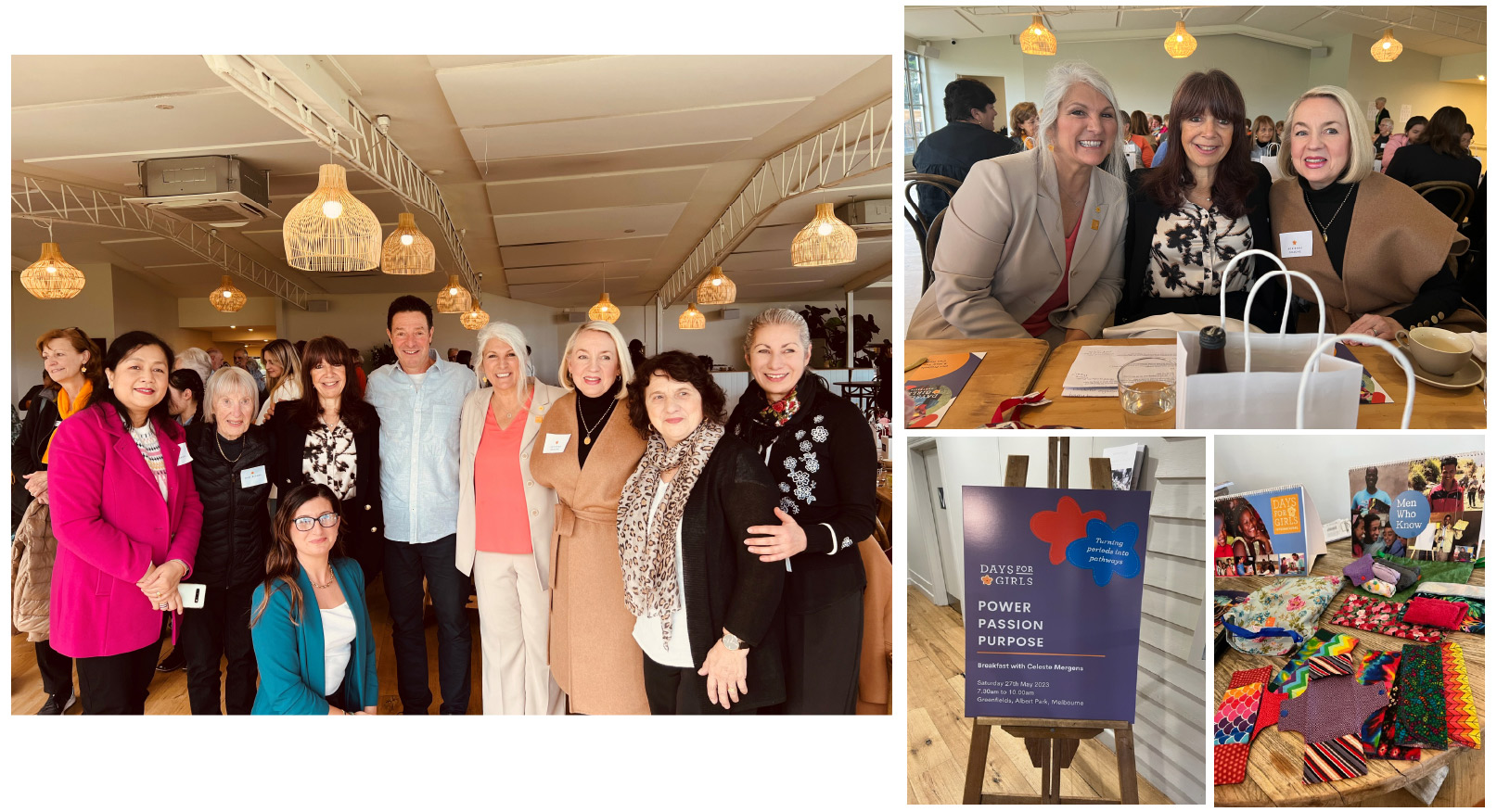 Fella Hamilton staff members with Celeste Mergens (DfGI Founder & former CEO) at the Days for Girls Breakfast
Fella Hamilton staff members with Celeste Mergens (DfGI Founder & former CEO) at the Days for Girls Breakfast
Given Fella Hamilton's commitment to the work of DfG teams and chapters in Australia, the decision to have Sharon Hamilton as moderator was an obvious choice. Since September 2020, Fella Hamilton has donated expertise and time in the machine cutting of waterproof, polyurethane laminate (PUL) fabric to make washable, long-lasting pads as well as carry pouches for the menstrual health kits. This fabric cutting has saved the charity months of time, as the fabric was previously traced and cut one-by-one by Days for Girls volunteers.
Sharon introduced Celeste (Founder and former CEO of DfGI) whose story began in 2008 when Celeste was working with a family foundation in the outskirts of Nairobi Kenya, assisting an orphanage with a rapidly increasing population. In the middle of the night Celeste asked herself “What are the girls doing when they get their periods?” and the answer was “Nothing, they wait in their rooms and they sit on cardboard.” And so the plan began to begin producing a washable, long-lasting pad. DfG started as a small yet passionate volunteer-run organisation, and now has a robust network of more than 70,000 volunteers on six continents and have delivered more than 2.9 million Kits in 150 countries around the globe.
One of the panel members at the event included Anita Byegon who is a member of the Board of Directors of DfGs, Kenya and is the Manager of Bomet DfGs Enterprise, Kenya. Anita is also a Social Entrepreneur, sexual and reproductive health and rights advocate, and is currently serving as Elected Member of Country Assembly elected in Kericho County, Kenya Government.
Following on from the breakfast, Sharon invited Anita to a morning tea at the Fella Hamilton factory to speak to the Fella Hamilton team. Anita was accompanied by Fancy Kiror, who is also an Elected Member of County Government, and Rotary Club member Jenny Foster who is a volunteer with the DfG Essendon team who provide for women in Timor Leste.
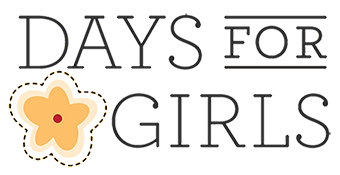
Fella Hamilton staff where thrilled to meet Anita, Jenny and Fancy and to hear more about Days for Girls. The team showcased the factory where Fella Hamilton cut the components for the menstrual health kits used in the DfG network around the world.
The event was made all the more special with Fella Hamilton herself, who is now 97 years, attending the event and a part of this inspirational day.
Jenny Foster (Rotary & DfG volunteer) introduced the ladies from Kenya and spoke about her alliance with Anita and Fancy - first through Days for Girls. Together they are now planning to become founding members of a new global Rotary Club, the ‘RC of Global Mission’, to be launched later this year to help rural communities globally, including Kenya. Jenny will become the Charter President. Having been a country girl herself, and with a father and mother heavily involved in charity work, Jenny has not known a life that hasn't been of service to others, and so her story set the tone for a truly inspirational morning.
Anita has been a DfG Enterprise founder from the year 2017 and she, along with Fancy Korir, were last year elected as Members of County Government. "It's not a normal thing for women to be elected in Kenya - they know that women are supposed to be somewhere but not in politics, but we stood out and said we wanted to make a difference".
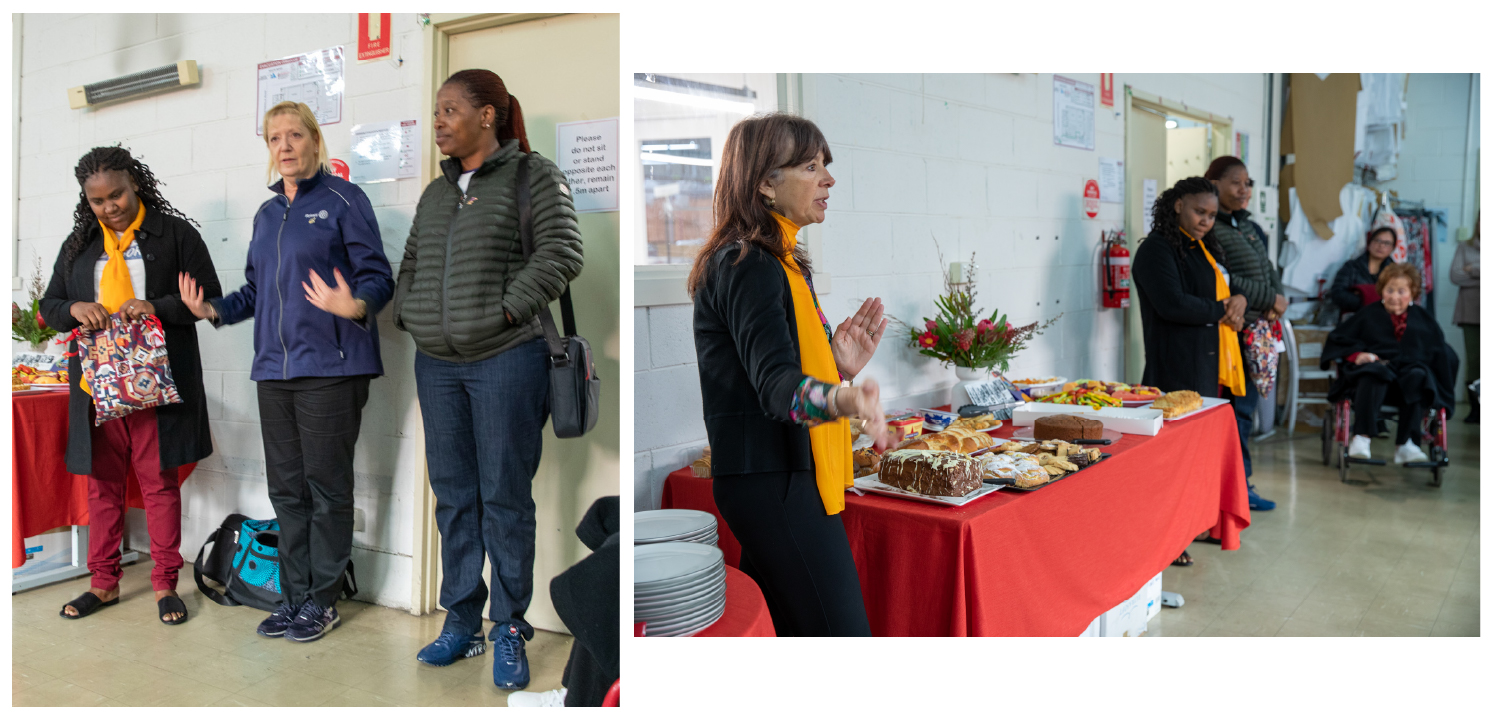
Anita, Jenny, Fancy & Sharon speaking at the morning tea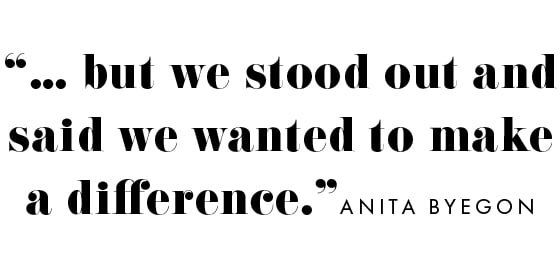
Anita spoke of the important work at DfG and how she started working with the organisation when she was struggling to see how she could help young girls maintain their dignity with menstruation. Instead of seeing menstruation as important days in women's lives, young women feel shame, isolation and desperation. As Celeste and Anita say "without menstruation, there are no people".
"In Kenya, for girls to be able to manage their period with dignity they have to go through hard times. When I talk of hard times, I talk of girls exchanging sex to get pads, and girls infected with HIV because of having to find ways to get money. I stood out and I said "no". I saw what my friends went through. I managed to go through school but most girls got pregnant in 5th, 6th, 7th grade and that was the end of their education. I told myself no, this should end because I think there is a better way that we can handle this." said Anita.
Like Celeste Mergen's who saw the need to act in 2008, with girls having to sleep on a board for 4 days or somewhere until their 'days' were over, Anita also made the decision to act. "We are still in a time where in a village in Nairobi girls have to dig a hole and sit for 4 days while they menstruate, or villages that are still using banana leaves. We live in a country where panties and bras are not normally available, you need to have money, but then you have to decide whether to buy food or buy this. These are not essential items for most families because they cannot afford it." Anita said. "Those are the times that we're still in, struggling to get what we call dignity. But we are here today, thanks to these amazing organisations who have been part of Days for Girls. They have helped to see us succeed as we made the reusable sanitary pads that last a girl up to three years keeps her in school and provided the education they need to understand their bodies and how to use the kits."
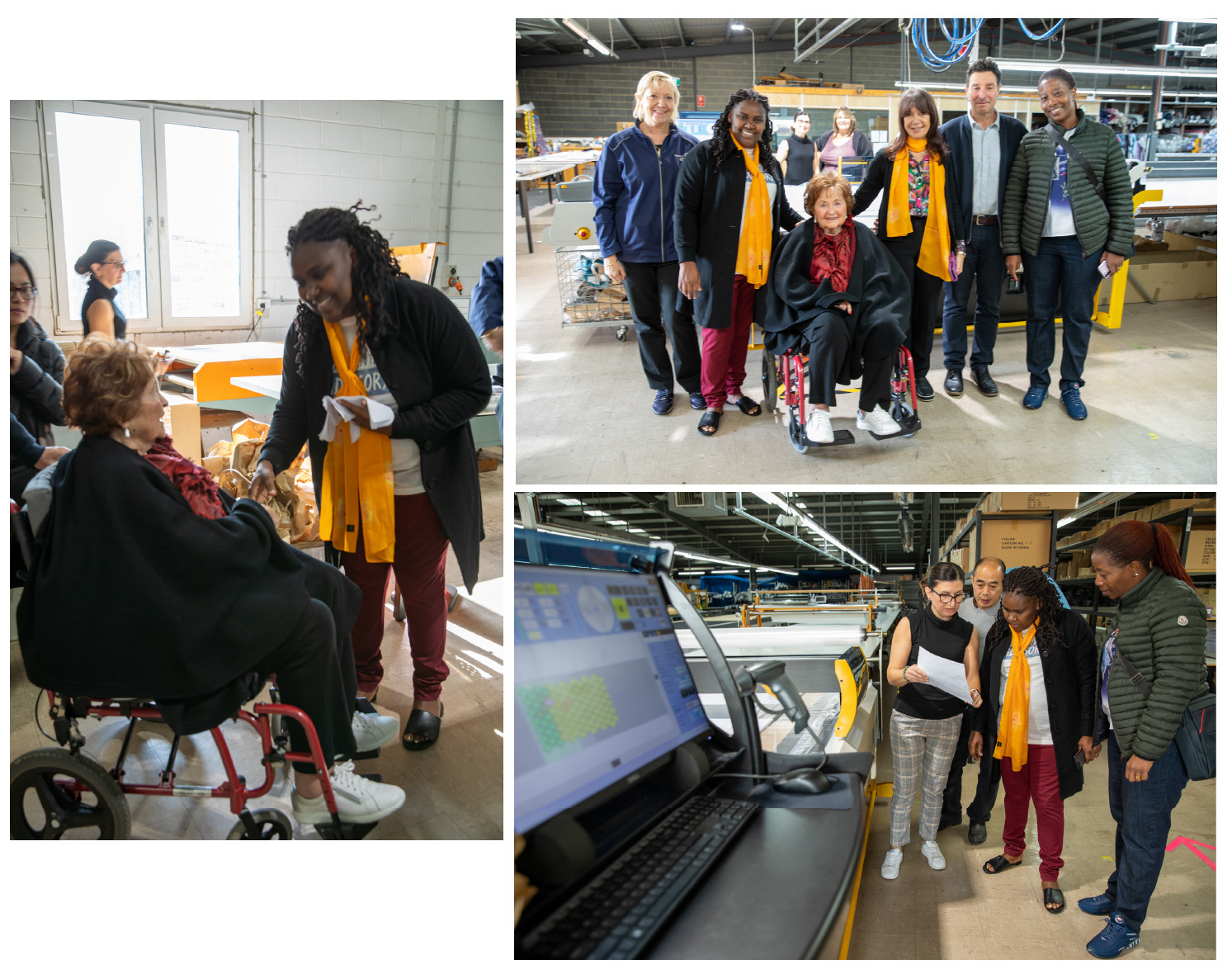 Fella Hamilton, Sharon & David Hamilton tour with Anita, Jenny and Fancy in the factory
Fella Hamilton, Sharon & David Hamilton tour with Anita, Jenny and Fancy in the factory
Eager to hear more, the Fella Hamilton team asked about how the Days for Girls Enterprise is set up & more on their role as members of County Assembly.
1. Do you have places set up to train the girls to sew bags and make the kits locally?
Across Kenya we have about 16 Enterprises with an Enterprise model where we have a sewing room and equipment and women are trained. Kenya is in the 'red zone' meaning they’re set up with DfG funding their Enterprises and they employ staff to cut & sew. We haven’t trained everyone because we are keen on quality and if we allow everyone to make it in their homes, we loose the quality aspect. We have the team distributed across the country and we're calling them the gold standard, so they can make quality kits. Now it's a matter of getting the Enterprise model to get support to be able to buy fabric. We're not allowed to bring kits into Kenya but we’re allowed monetary support from chapters and organisations so we can buy the fabric locally. Countries in the designated 'blue zone' that don’t have Entreprises, can receive kits made here in Australia. Countries in the 'orange zone' have some Enterprises, but also allow some kits to be sent from outside.
3. Now that you’re part of the government what are you hoping to implement?
In our role in Country Assembly, we play a part in the legislations and we're working the bigger problem of awareness, and to fight the stigma of menstruation, we have to talk about it. We are working on a Bill right now where all schools will train girls on menstrual health. And also boys, as we cannot fight stigma if we are only talking to one group. We have another education for the boys called ‘Men who know’ and this is for giving information to boys and men so they can be their sisters keepers. We teach what happens with male and female reproductive health. We want to fight this stigma so that it's not seen as shameful to stand out and speak about menstrual health and it's something that effects all of us. In terms of budgeting, if the government would allow us to put some money towards sanitary pads in schools, then that will be a solution for us also, so that if there’s an emergency, they can rush to somewhere in the school and get some protection.
Now being in government and being at the table where decisions are made, we want to see these changes happens in a period of 5 years that we’ve been elected to work for the people.

Sharon concluded "We live in a country where we don’t think twice about pads - children go to school and people know about their periods. But can you imagine these countries where women can't go to school past a certain age, that they are too ashamed to and have to sit on cardboard boxes. Life every one week out of four is humiliating for these young women. So with Days for Girls International, they have made close to 3 million kits so far to help these young women feel better about themselves, to have a normal life and to be able to go and work, not fell terrible about themselves."
Fella Hamilton is cutting components for many of the kits that DfG Australia send out, and there have been roughly 40,000 components cut so far. And because we now have an automatic cutting machine, DfG don't need trace and cut it by hand. Fella Hamilton cuts about 7000 at a time and DfG can’t produce at this level. Now with our automatic cutting machine, once it's all programmed up and layered, 7000 takes half an hour to cut. Laying up takes a day of work, but it's only half an hour to cut which saves all the DfG volunteers so much time. We’re planning to do this four times a year and locking it in to our calendar.
For Part 2 of this Blog, Next week see a Q & A with Fella about what has inspired her to rise up over the years and her thoughts on Fella Hamilton's involvement with the Days For Girls charity.
MORE INFORMATION -
If you would like to find out more about the incredible work Days for Girls do, here is a link to the Australian arm of the charity:
www.daysforgirls.org/australia


